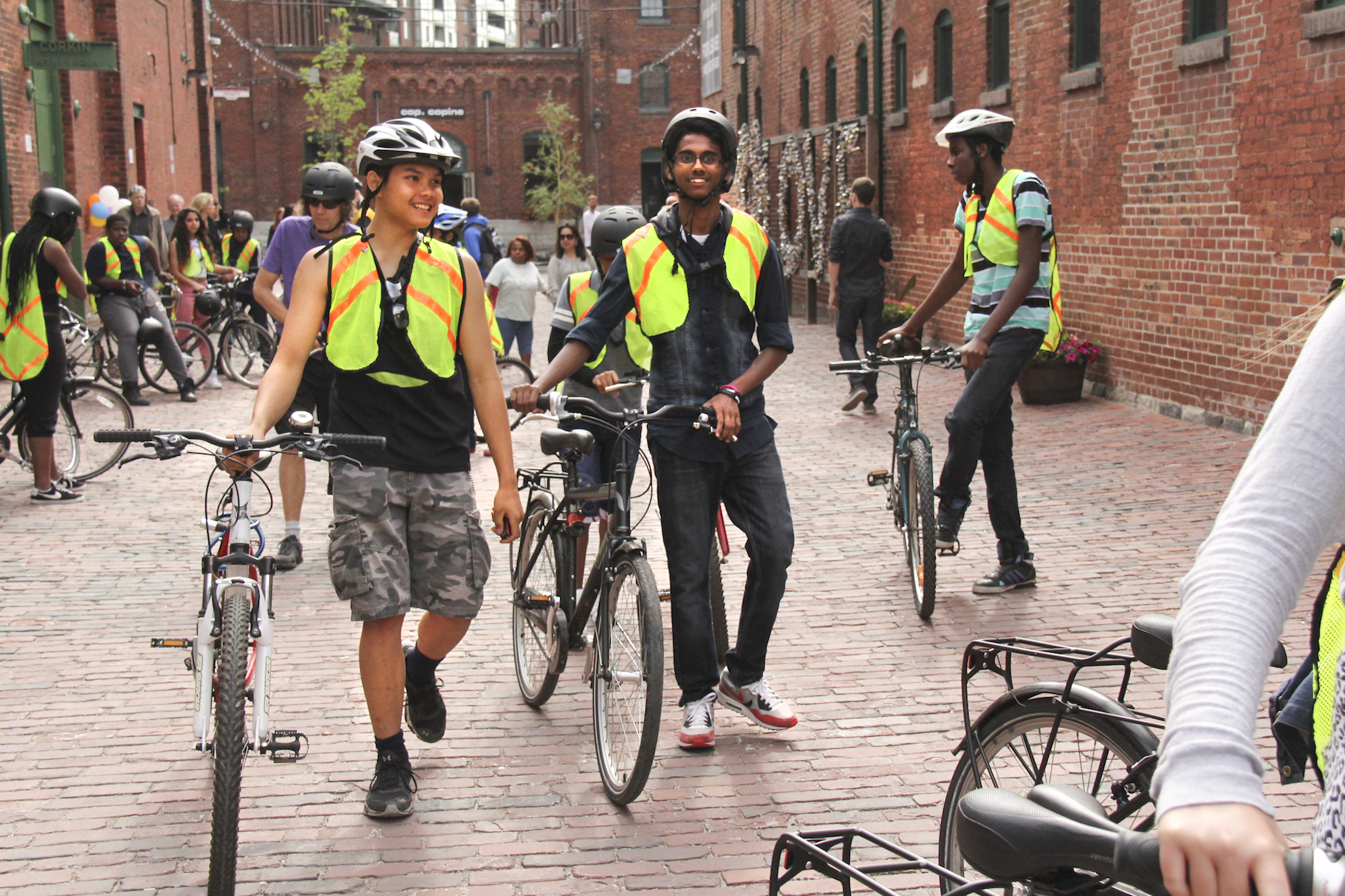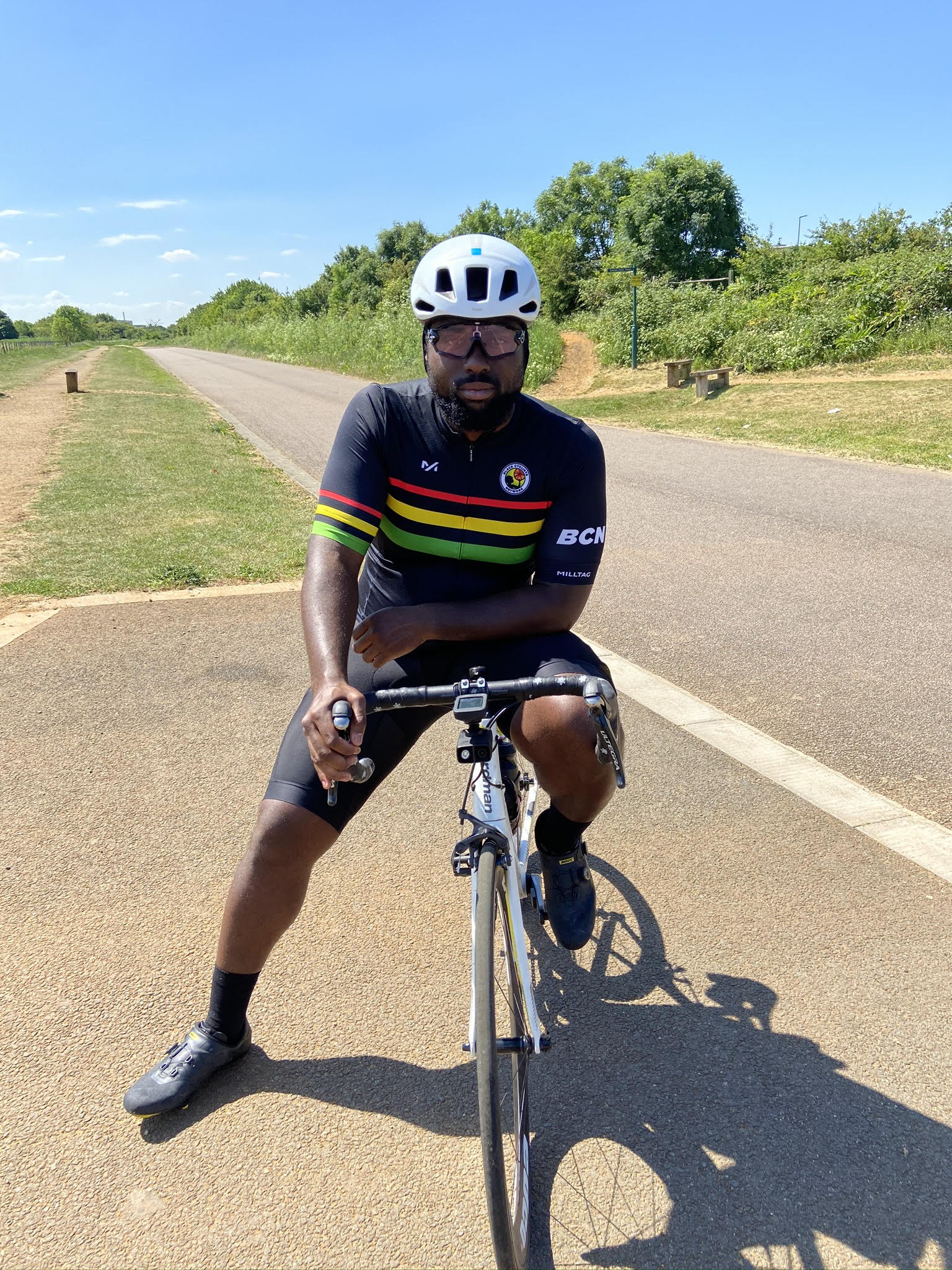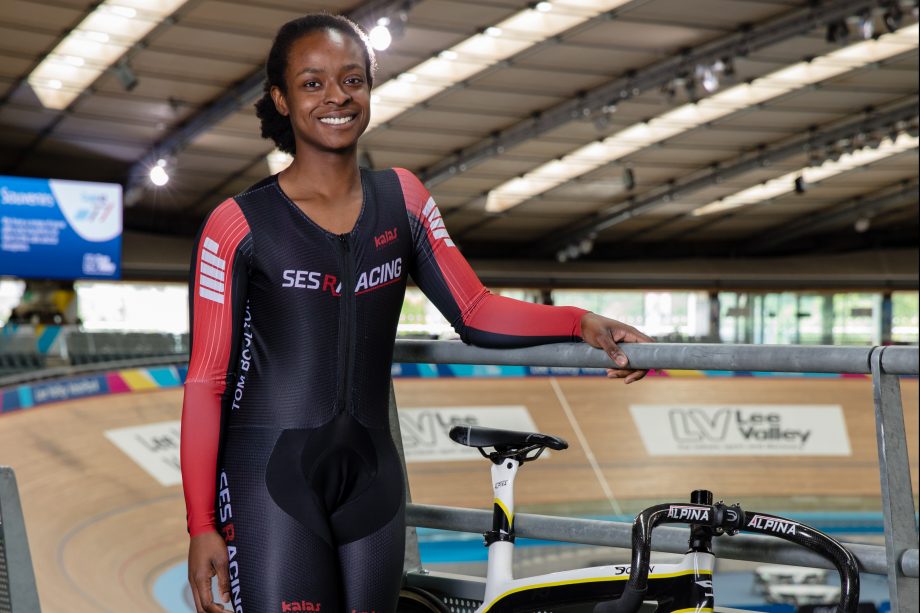‘Kids love competition, so start from there’: Why getting cycling into schools could be the future of the sport
To attract more people, cycling needs to speak to the youth


How can we broaden the appeal of cycling?
Research has shown the disparity in cycling participation levels, both in terms of race and gender.
According to the Diversity in Cycling report published last year, more than two fifths of white people surveyed had engaged in cycling compared with a third of black people and a third of those from the South Asian community.
The gender gap in cycling is also stark, with a study from Sustrans revealing that on average men make three times as many cycle trips as women.
For cycling to reach its full potential we must ensure it’s accessible, welcoming and promoted.
While interviewing riders about cycling’s lack of diversity and what we can do to fix it, a common theme emerged – cycling in schools.
My experience of sport in school was a five-year run of PE sessions dominated by football, basketball, and on a rare occasion dodgeball, a pattern that is mirrored across the country.
Get The Leadout Newsletter
The latest race content, interviews, features, reviews and expert buying guides, direct to your inbox!
When I wanted to ride my bike, I had to wait for the final bell and head to the skatepark on my BMX - that’s how I started cycling.
I didn’t know any road cyclists and endurance sport was reserved for the two dedicated cross-country runners in my year who seemed to be part of some clandestine club off limits to us ‘non-sporty’ types.
Speaking to Nate Roberts, a 23-year-old engineering technician apprentice and cyclist from Bow in East London, he also highlighted the lack of cycling in schools.

He said: “In my local area and especially in the black community, football and basketball are the popular sports and I wanted to do something different. Cycling offers so much freedom and exploration.
“Growing up in a working class area, cycling wasn’t as advertised and was known for just white people doing it. It is also very expensive, so my parents buying me a road bike was out of the question”
Roberts said he wasn’t exposed to cycling when he was young, but that since discovering the sport he has experienced the very best two wheels has to offer – meeting new people, learning about the bike, and developing as a person.
Having tried a number of cycling clubs, Roberts said some riders weren’t welcoming, making him feel that didn’t fit in, that is until he joined the Black Cyclists Network (BCN) run by Mani Arthur.
BCN has recently launched the first black and ethnic minority race team in the UK and have smashed their fundraising target to help support their riders.
On the barriers black people face in cycling, Roberts said: “Society shows us that we can run, play football, et cetera but when it comes to cycling, society hasn’t shown us that we can do cycling.
“Introducing it into the community through youth clubs or state schools in different areas of London would aid people of colour getting into cycling.”
There is work being done at grassroots level to get cycling into schools, with charity Cycling UK one of the organisations at the forefront of this.
Through its Bikeability training scheme, Cycling UK is helping to get kids on bikes and teach them all the skills they need to ride confidently and safely.
But despite the work being done, only three per cent of five to 16-year-olds make the journey to school by bike, even though the average journey distance is only 2.4 miles.
At primary school level there is actually a good balance of boys and girls cycling, but by secondary school it's mainly boys who pedal in.
Cycling in schools has clear potential for improving diversity in the sport, according to Cycling UK’s director of behaviour change and development, James Scott, but there are still barriers to overcome – namely parents’ views and the school’s attitude towards cycling.
“There are some schools out there which have done great work getting pupils to cycle," Scott explained.
“However, they are usually reliant upon one or two keen and committed teachers. Despite cycling being no more dangerous than walking when it comes to being killed or seriously injured on our roads – walking is a far more popular means of getting to school, breaking down these barriers are necessary if we want more cycling at a school level.”
On the competitive side, cycling can often be a late second choice for many athletes, either due to injury or through talent-scouting programmes.
Yewande Adesida, a West London-based track rider and PhD student, is among the long list of cyclists who discovered the sport through an entirely different discipline.
Adesida started her sporting career as a rower, only starting to cycle on the Wattbike as cross-training before she then switched to riding the bike as her main sport around four years ago.

What kick-started her life as a competitive rower was actually indoor rowing, which she started in secondary school in year eight, not stepping into a boat until year 11.
Could a similar model be adopted for cycling, introducing competitive, virtual racing into schools as a stepping-stone to real world riding?
“Kids love competition,” Adesida said.
“There is technique involved to rowing but a lot of that is removed and there are less safety elements to consider when you're doing indoor rowing.
“There are so many different stationary bikes. You could set up 10 bikes and tell kids they're in competition and they would love it, and then just start from there.
“I think it's just a much easier way to reach people because you're taking away the fear that some people might have of being out on the road or falling off the bike and just give them a chance to have fun.”
Once again Cycling UK has been working hard to bring cycling into the PE curriculum, by successfully campaigning to get funding for cycling related equipment and training for instructors.
But cycling competes with a host of other (sometimes cheaper) sports for funding, while bikes require storage space, repairs and even cycling facilities like a BMX track or velodrome.
Scott said: “Static bikes can be a potential pathway to a more competitive cycling life, as it’s relatively easy to do. However, it’s never going to be a substitute for the real thing.
“It can be an add on, but it’s safer roads so children aren’t stuck in class rooms which will make competition possible. That means a change in behaviour for some drivers and also proper infrastructure.”
>>> Justin Williams’ Legion of Los Angeles raise $50k for cycling diversity fund
Both Adesida and Roberts had similar experiences on their two-wheeled travels – they looked at the sport and saw a lack of diversity, which made them feel like it wasn’t for them.
But if we can start at the bottom and prove to kids that cycling is for everyone, then maybe that’s how people will see the sport from the outside.

Thank you for reading 20 articles this month* Join now for unlimited access
Enjoy your first month for just £1 / $1 / €1
*Read 5 free articles per month without a subscription

Join now for unlimited access
Try first month for just £1 / $1 / €1
Alex Ballinger is editor of BikeBiz magazine, the leading publication for the UK cycle industry, and is the former digital news editor for CyclingWeekly.com. After gaining experience in local newsrooms, national newspapers and in digital journalism, Alex found his calling in cycling, first as a reporter, then as news editor responsible for Cycling Weekly's online news output, and now as the editor of BikeBiz. Since pro cycling first captured his heart during the 2010 Tour de France (specifically the Contador-Schleck battle) Alex covered three Tours de France, multiple editions of the Tour of Britain, and the World Championships, while both writing and video presenting for Cycling Weekly. He also specialises in fitness writing, often throwing himself into the deep end to help readers improve their own power numbers. Away from the desk, Alex can be found racing time trials, riding BMX and mountain bikes, or exploring off-road on his gravel bike. He’s also an avid gamer, and can usually be found buried in an eclectic selection of books.
-
 'It took everything' - Puck Pieterse outclimbs Demi Vollering to win La Flèche Wallonne
'It took everything' - Puck Pieterse outclimbs Demi Vollering to win La Flèche WallonneDutch 22-year-old shows Classics pedigree with first one-day victory
By Tom Davidson
-
 Tadej Pogačar flies to dominant victory at La Flèche Wallonne
Tadej Pogačar flies to dominant victory at La Flèche WallonneSlovenian takes second win at Belgian classic ahead of Kévin Vauquelin and Tom Pidcock
By Tom Thewlis